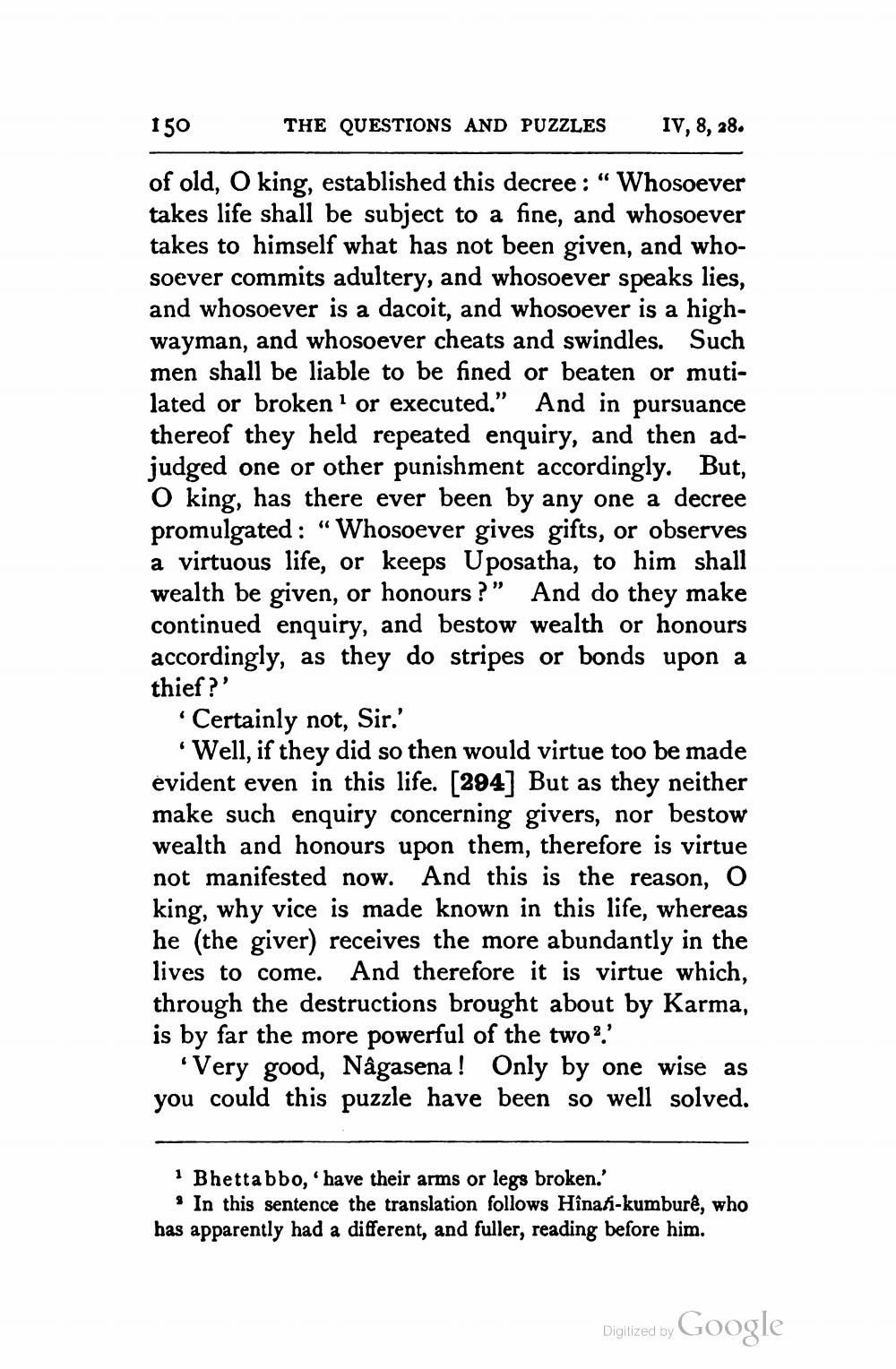________________
150
THE QUESTIONS AND PUZZLES
IV, 8, 28.
1
of old, O king, established this decree: "Whosoever takes life shall be subject to a fine, and whosoever takes to himself what has not been given, and whosoever commits adultery, and whosoever speaks lies, and whosoever is a dacoit, and whosoever is a highwayman, and whosoever cheats and swindles. Such men shall be liable to be fined or beaten or mutilated or broken or executed." And in pursuance thereof they held repeated enquiry, and then adjudged one or other punishment accordingly. But, O king, has there ever been by any one a decree promulgated: "Whosoever gives gifts, or observes a virtuous life, or keeps Uposatha, to him shall wealth be given, or honours?" And do they make continued enquiry, and bestow wealth or honours accordingly, as they do stripes or bonds upon a thief?'
'Certainly not, Sir.'
'Well, if they did so then would virtue too be made evident even in this life. [294] But as they neither make such enquiry concerning givers, nor bestow wealth and honours upon them, therefore is virtue not manifested now. And this is the reason, O king, why vice is made known in this life, whereas he (the giver) receives the more abundantly in the lives to come. And therefore it is virtue which, through the destructions brought about by Karma, is by far the more powerful of the two".'
'Very good, Nâgasena! Only by one wise as you could this puzzle have been so well solved.
1 Bhettabbo,' have their arms or legs broken.'
In this sentence the translation follows HînaЛi-kumburê, who has apparently had a different, and fuller, reading before him.
Digitized by Google




